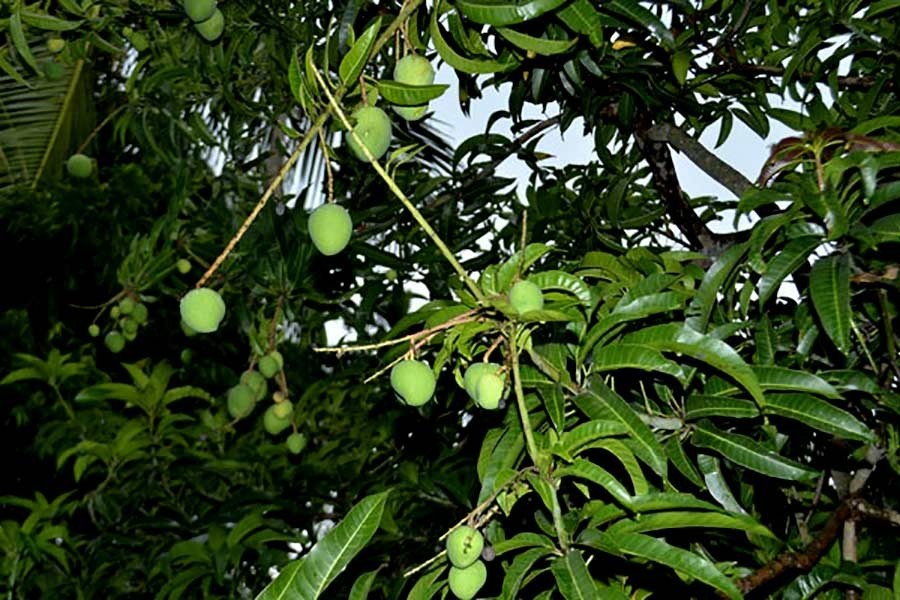Pahela Baishakh, the Bangla New Year, is being celebrated today amid traditional festivity. A nationwide festival, it is the greatest one centring on the Bangla heritage and culture. The opening month of Baishakh has for ages been associated with many other aspects of Bangla culture. One of them is its gift of delicious summer fruits. They range from mangoes, considered the king of Bangladesh fruits, to litchis, watermelons, jackfruits and blue berries and lots of other summer fruits.
To the delight of people across the country, especially in the cities, mangoes have been witnessing abundant yields in the recent years. Coming mainly from the south-western and northern regions of the country, this special type of mangoes was once beyond the reach of the average consumers. Thanks to the good harvests and their overrunning of the marketing racketeers, the fruit has lately occupied a dominant place in the country's fruit world. Mangoes of different varieties are now accessible to even the down-and-out consumers. The scenario is, however, not completely free from a few ills. The dominant among them is the menace of artificial ripening of mangoes. In the recent years, it has posed a great challenge to safe consumption of the fruit. A syndicate in the fruit marketing chain eventually crept into the mango business. Thanks to the timely intervention of the law enforcing authorities, the scourge has considerably subsided in the capital. But the smaller cities and towns remain vulnerable to the mischievous activities of the adulteration network. Moreover, due to some loopholes, the dread of the return of the menace in a new form looms.
In reality, the whole sector of summer fruits in the country is beset with one or another disincentive for the growers. In the recent years, litchis have also been found being tainted with the ripening chemicals. Lately, a new evil practice has emerged. A section of farmers have been found spraying toxic pesticides on the fruit. Viewing it to be harmful to human health, the High Court on April 9 came up with a directive. It has asked the government to deploy police at the mango orchards in the south-western Rajshahi region to prevent spraying of toxic chemicals on tree-borne mangoes. Jackfruit, the national fruit, still remains safe. So are some other fruits, especially watermelons. But like in many other areas, they may not be finally able to keep themselves free from the clutches of the fruit-tainting syndicates. According to people close to mango orchards, it is a section of growers who began the vile process of tainting the fruit with chemical substances. In order to have windfall profits, these farmers engage in a competition to bring the artificially ripened mangoes to both the wholesale and retail markets. Despite the government's recent slapping of a ban on harvesting the fruit before a deadline, flouting of rules also goes on concomitantly. It's only a strict surveillance enforced by the authorities concerned which can stop this menace. The Department of Agriculture Extension (DAE) has shown their capabilities to stem many irregularities related to agriculture. It is credited with encouraging growers to use the 'mango bagging' method. That people will look forward to them for keeping the mango sector safe and hazard-free is implied.
Bangladesh's south-western and northern parts have for ages been famous for quality mangoes. They belong to the breeds completely different from the indigenous varieties in terms of look, taste and aroma. The indigenous fruit are fibrous and sour-sweet in taste. With the Khirshapat variety winning the GI tag, the Bangladeshi mangoes have been given an international recognition. Apart from ensuring its export potential, the coveted tag has also elevated the place of the country's mangoes among their local lovers.


